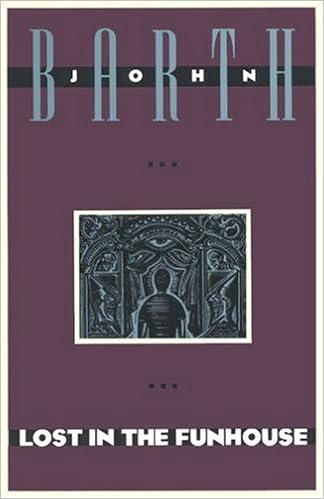Years ago I read The Last Voyage of Somebody Sailor, which I enjoyed enough that I kept a copy of it in my personal library (despite whatever mediocre reviews it may have gotten). But it has taken me nearly two decades now to get to Barth's classic collection of stories. Unfortunately, the collection proved as a whole to be underwhelming.
Here's what I liked about Somebody Sailor, as I recall: Barth's musings on middle-class life. There was, of course, a whole other plot involving Sinbad that becomes mixed in with the work, and while somewhat interesting, it was less compelling to me than the realist fiction of everyday life.
Something similar happened with this book for me. I was drawn most to the stories about Ambrose and his family. One explained how Ambrose got his name. One involved Ambrose being locked out of his brother Peter and Peter's friends' "club," in which the older kids discover a few things about sex. And the last involved Ambrose going to an amusement park. Each had some metafictional musings, as does the collection as a whole, but they remained subjugated to the purposes of the story as a whole. Such is not as much the case with the other stories, and as a result, my interest often waned before getting far into them.
Here's a rundown of some of the devices included: there's a story ("Night-Sea Journey") of a life that is essentially the tale of a sperm crossing crossing to its egg (or so I read from a secondary source--the tale could be easily read as one of a person swimming for life). There's a story telling the story of itself ("Autobiography"), which proves hardly as interesting as the conceit sounds. Other stories recount, in varying form, Greek legends--one discovering how to write as story, one exploring stories within stories (the techniques of "Menelaiad" is fascinating, as we get to a point where there are seven quotes within quotes, but the story itself hardly kept my attention).
The one exception to these other stories that really intrigued me was "Life-Story," which told of a writer trying to write the story that we readers are currently reading. All the conflict and crisis occurs right in there, as we witness the write dissatisfied with his work trying desperately to bring a decent story into being.
Wednesday, November 11, 2015
On "Lost in the Funhouse" by John Barth ***
Labels:
Books,
Collections,
John Barth,
Three-Star Collections
Subscribe to:
Post Comments (Atom)







No comments:
Post a Comment